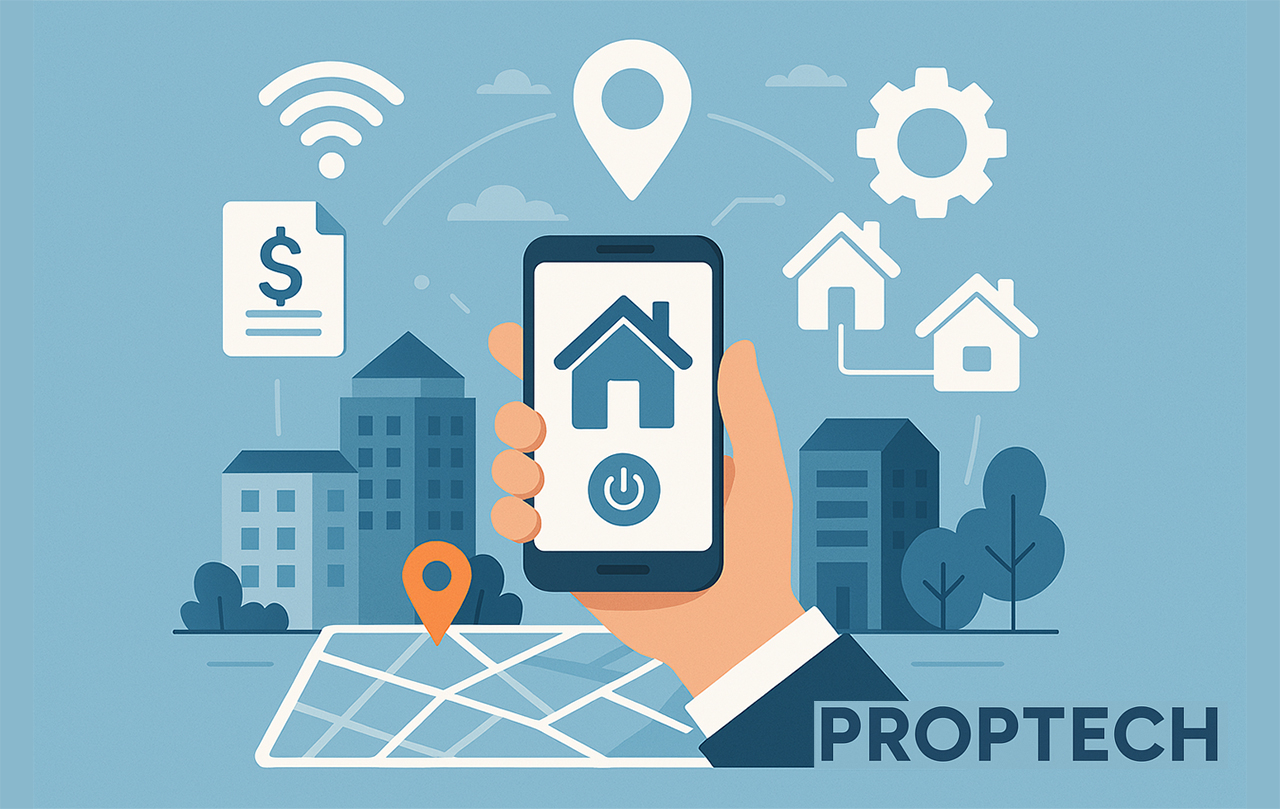Proptech trends: How real estate markets are adopting tech in 2025

The real estate market famously lags behind other marketing disciplines when it comes to adopting modern technology, but that’s changing. The new buzzword in the industry is proptech, or property technology, which is changing the way the industry works at a foundational level.
It’s tomorrow’s technology, and the leading lights of the real estate industry are using it right now. So, it’s time to get on board or get left behind.
1. AI-powered real estate analysis
Artificial Intelligence is the technological breakthrough of the century so far, transforming real estate and everything else. While we’ve barely scratched the surface of its skills, AI has already raised the bar with property valuations, risk assessment, and customer service.
Advanced machine learning models can analyse historical data, consumer preferences, unique features, and local market trends to produce increasingly accurate estimates and price predictions.
Zillow’s Zestimate is the best of the new breed, with a 2.4% margin of error for on-market homes and 7.49% for off-market. So, it’s still best to get a house valuation, but Zillow’s tool is a great start.
AI goes well beyond simple valuations, too. It can sort vast amounts of data to make more personal recommendations, and chatbots are getting so good that McKinsey Research recently revealed chatbots handle 90% of tenant inquiries. The new wave of bots can help buyers sift thousands of listings and find exactly what they’re looking for before a human steps in to close the deal.
Zillow and Opendoor are also experimenting with AI-powered iBuying, where they use AI to evaluate the property and present a cash offer within 24 hours, before reselling the home on their market-leading platform.
2. Blockchain and smart contracts
Blockchain technology is the dry and dull technology behind cryptocurrencies, but the decentralised ledger has found a new lease of life controlling supply chain management, healthcare and now real estate.
The blockchain is an immutable ledger equipped with smart contracts that can automate a large number of transactions and multi-stage processes when the conditions are met. What does that mean for real estate? This means that the paperwork and bureaucracy involved in the average house sale can be slashed, and the whole process is more efficient and cheaper.
Coadjute is one British platform that enables all the relevant parties in a property transaction to share information seamlessly, including estate agents, mortgage lenders, and conveyancers, to smooth out the property sales process.
The land registries in Dubai and Georgia, and the elections in Estonia run on the blockchain already. The UK Land Registry is running its own pilot scheme, and it’s inevitable that one day, every property transaction will be blockchain-based. Estate agents increasingly use blockchain technology linked to machine learning models to manage the whole listing, selling, and completion process.
3. Tokenisation
40% of working households in the UK have no hope of buying a 2-3 bedroom house in their area, according to a Zoopla study. The property ladder remains out of reach for too many people, but tokenisation could change that.
This is next-generation fractional ownership that removes trust from the equation and gives the buyer a defined stake in a property in digital shares. It’s a concept that can help youngsters build equity to fund their first home or investors around the world take a stake in a new resort or shopping centre.
In 2018, Elevated Returns created the Aspen Coin, which tokenised the St Regis Aspen Resort in Colorado. The developers sold an 18.9% stake in the resort to investors around the world for as little as $1 each.
Unison in the US offers equity-based financing to help people get on the property ladder in exchange for a stake in the property and future capital gains. It also offers reverse mortgages to help people release equity, and it’s all because of tokenisation.
4. Digital twins
City planners and large-scale developers have used Computer-Aided Design (CAD) for a while now, but digital twins are the next level. These are virtual replicas of buildings, complexes, and infrastructure that provide a massive amount of data and information on structural integrity, energy efficiency, maintenance requirements, and much more.
Digital twins can help urban planners, and eventually, this will filter down to architects and home improvement specialists.
5. Virtual and augmented reality
VR is finally heading into the mainstream and fully immersive 3D tours of properties are increasingly common. Cloudpano revealed that properties with VR and Augmented Reality walkthroughs receive 87% more views on listings sites.
The editorial unit

























Facebook
Twitter
Instagram
YouTube
RSS